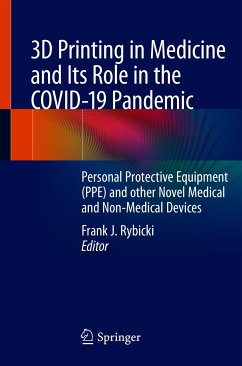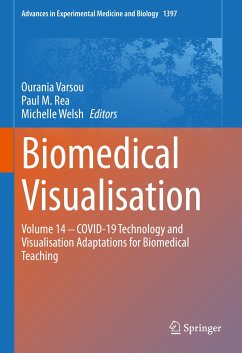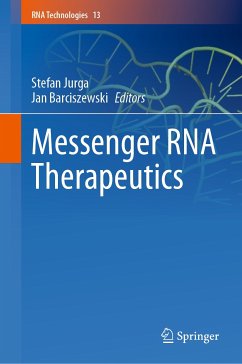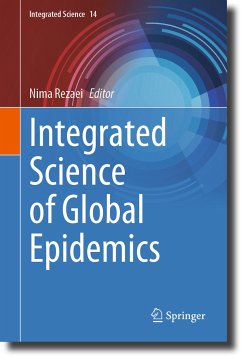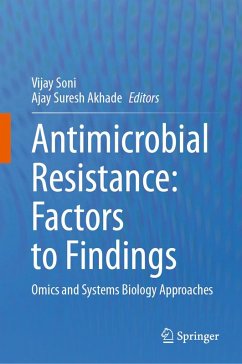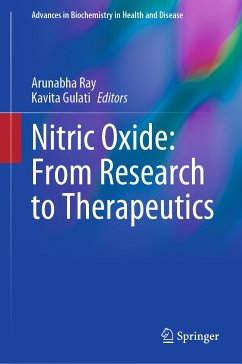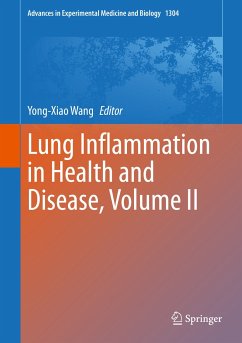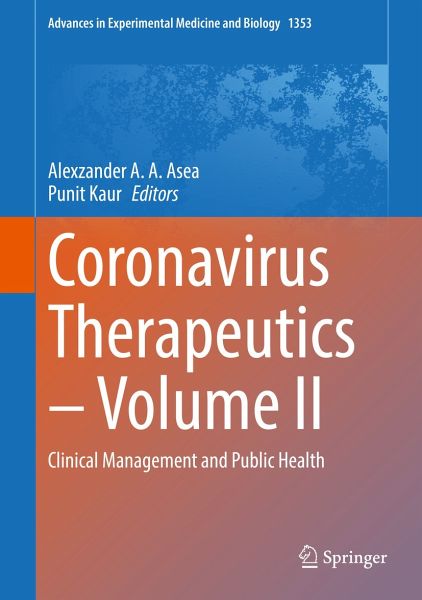
Coronavirus Therapeutics - Volume II (eBook, PDF)
Clinical Management and Public Health
Redaktion: Asea, Alexzander A. A.; Kaur, Punit
Versandkostenfrei!
Sofort per Download lieferbar
120,95 €
inkl. MwSt.
Weitere Ausgaben:

PAYBACK Punkte
60 °P sammeln!
The book Coronavirus Therapeutics Volume II provides the most comprehensive review on contemporary knowledge on the consequences during the outbreak of Coronavirus. This also describes the clinical features, diagnostic evaluation and management of Coronavirus patients. Using an integrative approach to the understanding of paradigm gap in host-pathogen interaction studies to the management of Coronavirus patients in the Intensive Care Unit to the current challenges for the effective management of Coronavirus pandemic risk factors including diabetes, hypertension, obesity and repercussion on the...
The book Coronavirus Therapeutics Volume II provides the most comprehensive review on contemporary knowledge on the consequences during the outbreak of Coronavirus. This also describes the clinical features, diagnostic evaluation and management of Coronavirus patients. Using an integrative approach to the understanding of paradigm gap in host-pathogen interaction studies to the management of Coronavirus patients in the Intensive Care Unit to the current challenges for the effective management of Coronavirus pandemic risk factors including diabetes, hypertension, obesity and repercussion on the central and peripheral nervous system.
Key basic and clinical research laboratories from major universities, academic medical hospitals, biotechnology and pharmaceutical laboratories around the world have contributed articles that review present research activity on the role of heat shock proteins in human diseases and importantly project the field into the future. Thebook is a must read for graduate students. medical students, basic science researchers and postdoctoral scholars in the fields of Cancer Biology, Oncology, Cardiovascular Diseases, Microbiology, Inflammation, Translational Medicine, Clinical Research, Biotechnology, Cell & Molecular Medicine, Pharmaceutical Scientists and Researchers involved in Drug Discovery.
Dieser Download kann aus rechtlichen Gründen nur mit Rechnungsadresse in A, B, BG, CY, CZ, D, DK, EW, E, FIN, F, GR, HR, H, IRL, I, LT, L, LR, M, NL, PL, P, R, S, SLO, SK ausgeliefert werden.



